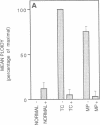Abstract
The circulating blood platelet is produced by the bone marrow megakaryocyte. In response to a decrease in the platelet count, megakaryocytes increase in number and ploidy. Although this feedback loop has long been thought to be mediated by a circulating hematopoietic factor, no such factor has been purified. Using a model of thrombocytopenia in sheep, we have identified an active substance called megapoietin, which stimulated an increase in the number and ploidy of megakaryocytes in bone marrow culture. Circulating levels of this factor could be quantified with this assay and were found to be inversely proportional to the platelet count of the sheep. Levels increased from < 0.26 pM in normal sheep to 25-40 pM in thrombocytopenic sheep. From large amounts of thrombocytopenic sheep plasma we have purified a 31,200-Da protein and found that it retained the ability to stimulate both megakaryocyte number and ploidy in vitro. Injection of partially purified megapoietin into rats stimulated a 24% increase in megakaryocyte number and a 60% increase in mean ploidy as well as a 77% increase in the platelet count. Sheep platelets bound megapoietin and the amount of platelets required to eliminate half the activity in vitro was close to the amount associated with this same level of activity in vivo. We believe that megapoietin is the physiologically relevant mediator of megakaryocyte growth and platelet production. Moreover, our data suggest that the level of megapoietin is directly determined by the ability of platelets to remove megapoietin from the circulation.
Full text
PDF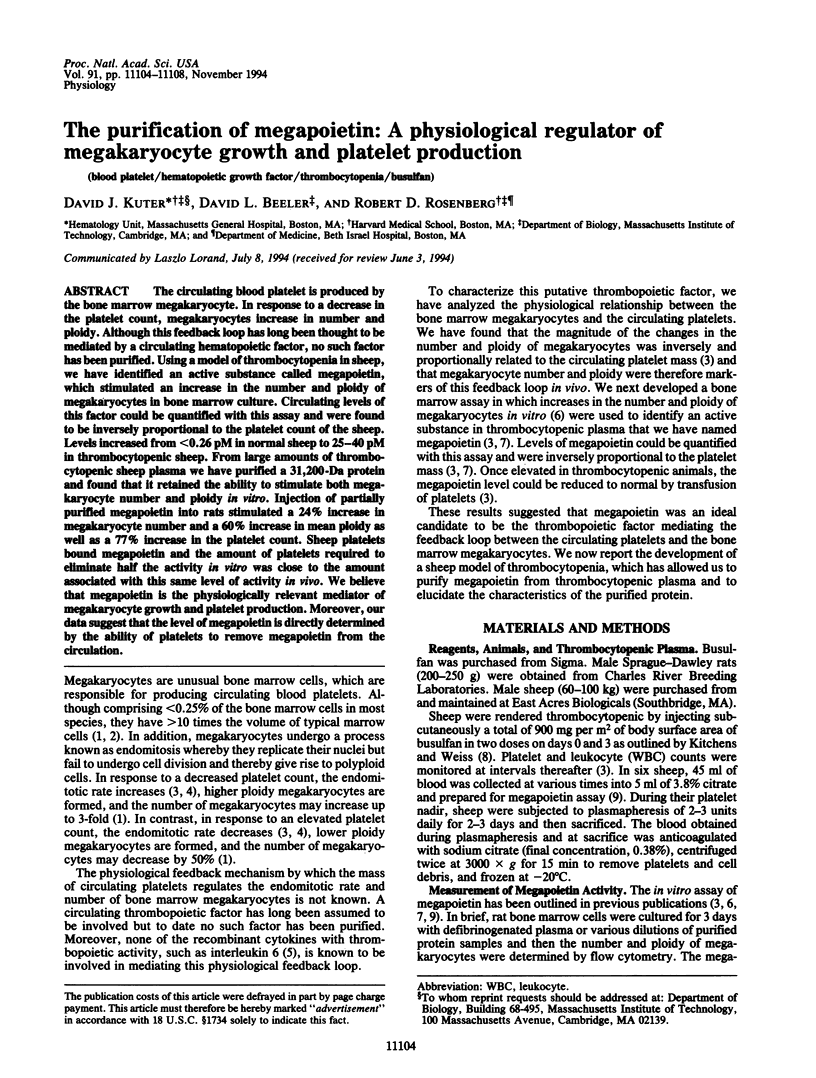
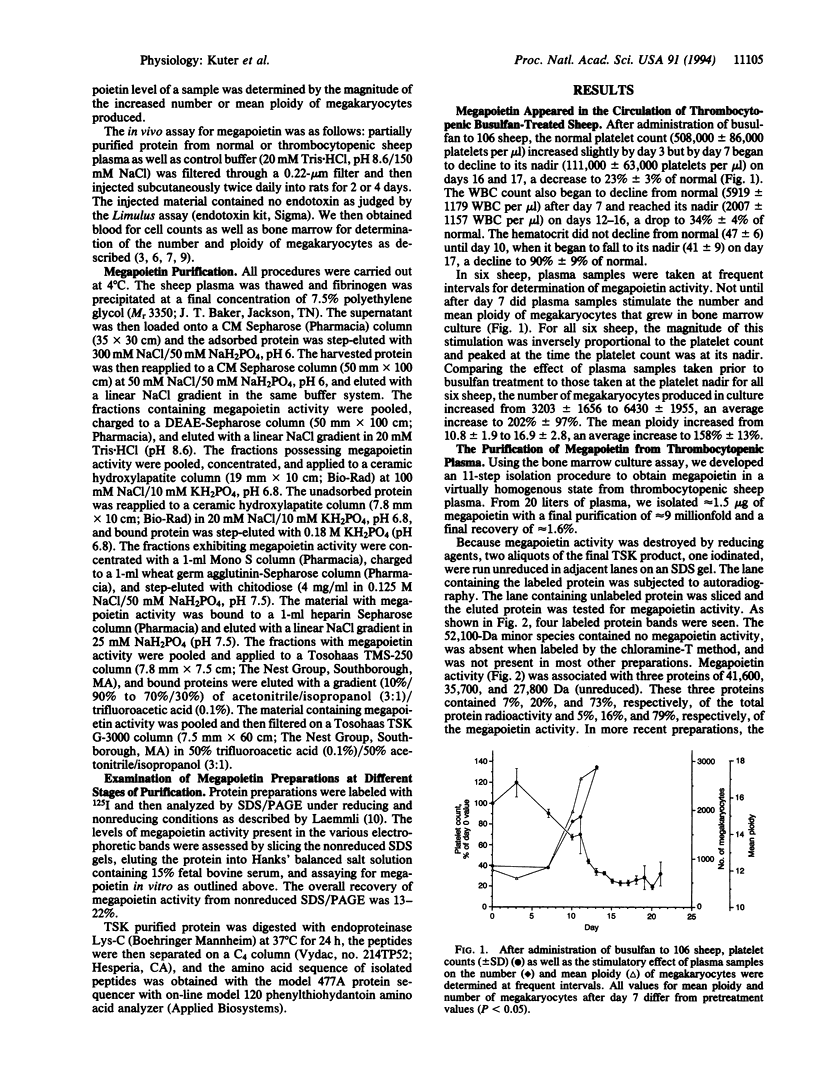
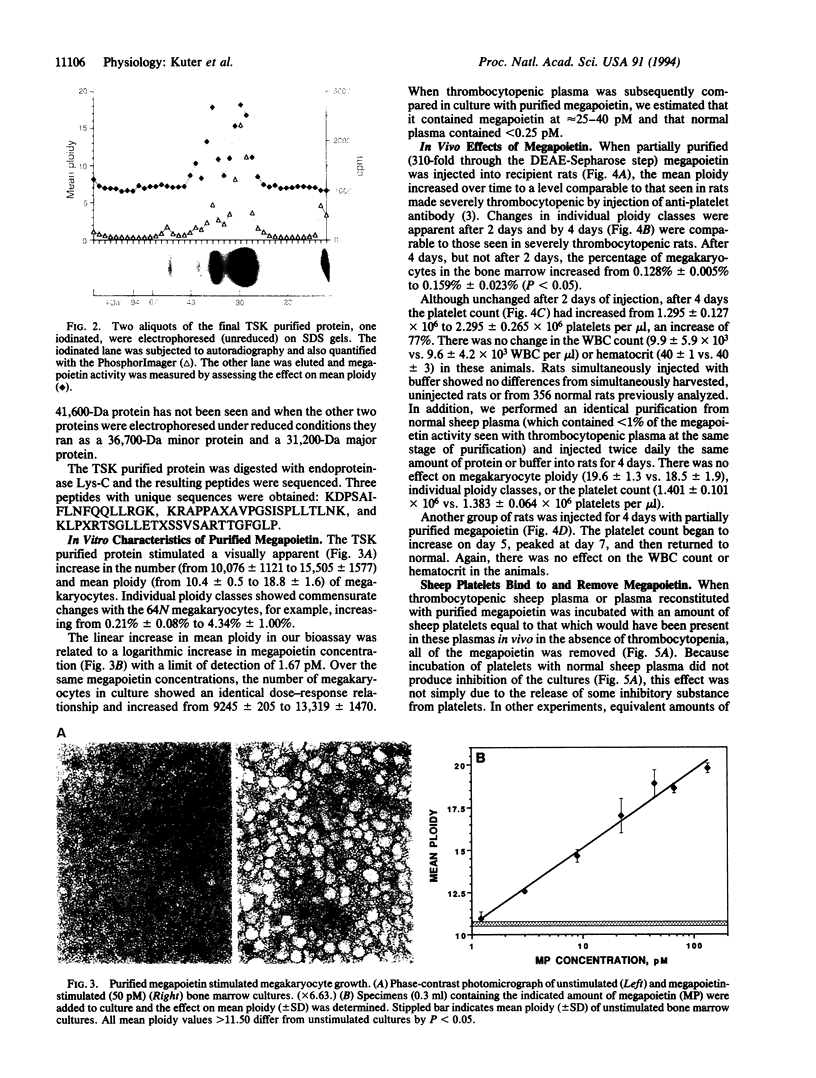
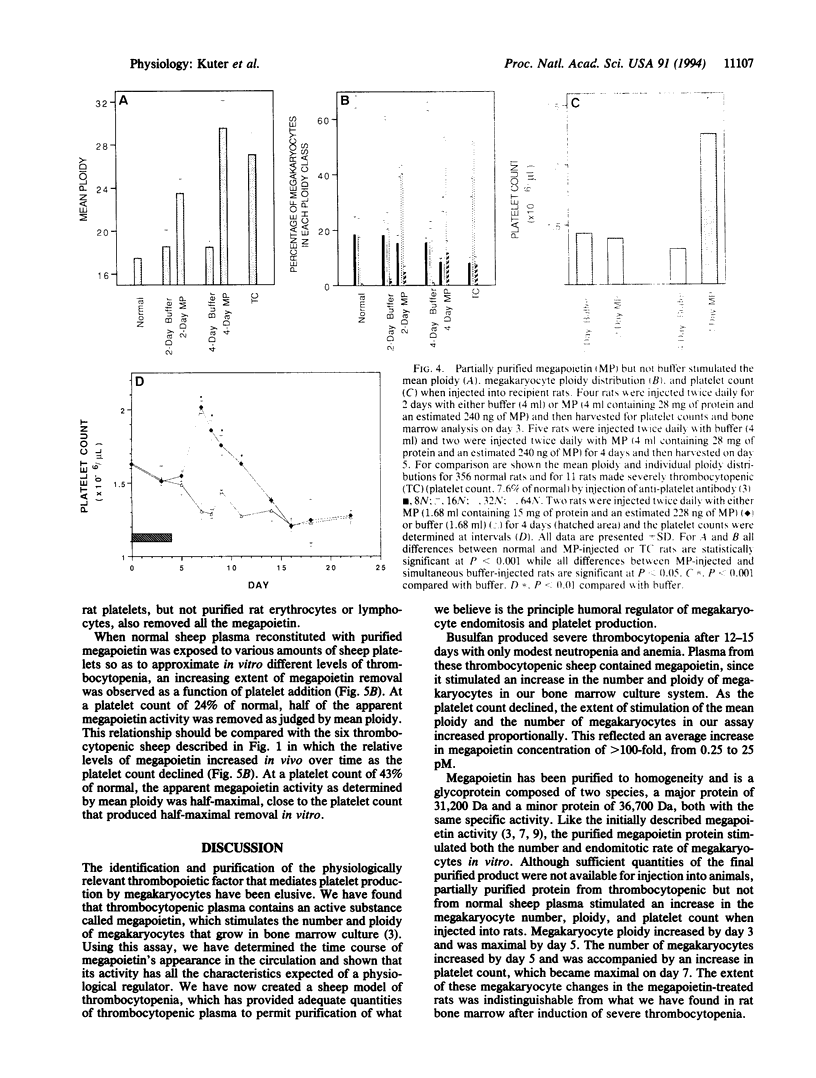
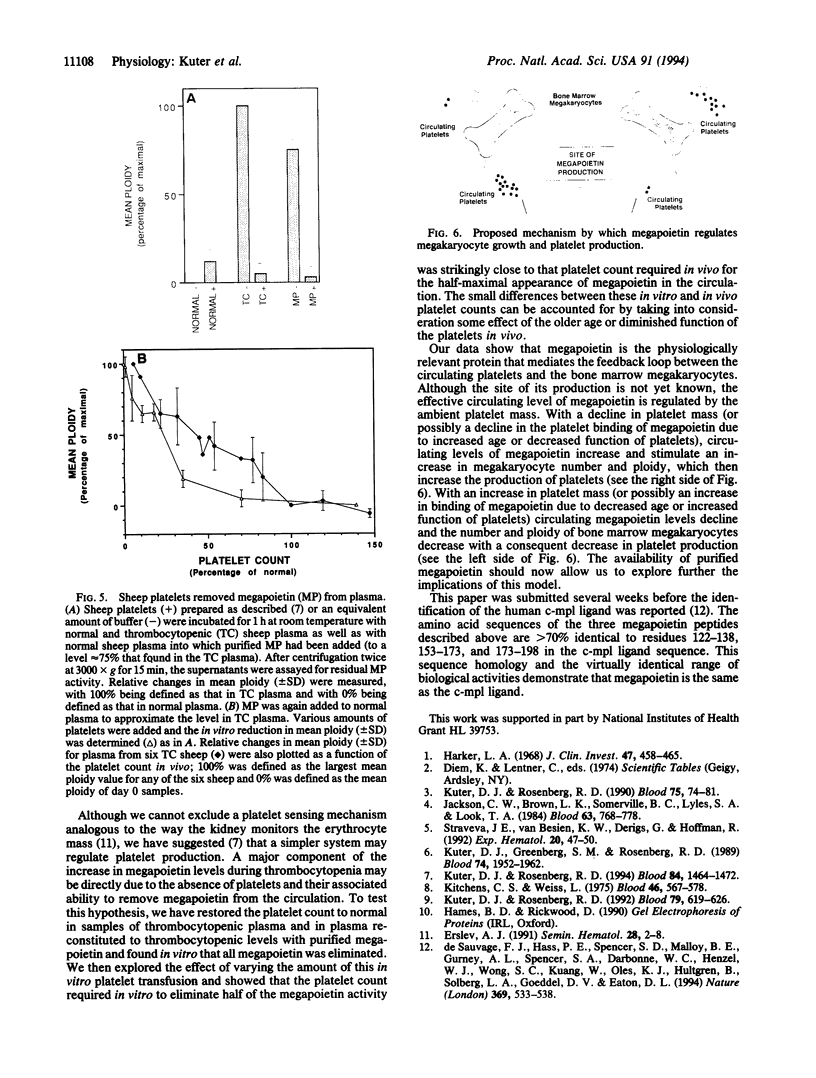
Images in this article
Selected References
These references are in PubMed. This may not be the complete list of references from this article.
- Erslev A. J. Erythropoietin titers in health and disease. Semin Hematol. 1991 Jul;28(3 Suppl 3):2–8. [PubMed] [Google Scholar]
- Harker L. A. Kinetics of thrombopoiesis. J Clin Invest. 1968 Mar;47(3):458–465. doi: 10.1172/JCI105742. [DOI] [PMC free article] [PubMed] [Google Scholar]
- Jackson C. W., Brown L. K., Somerville B. C., Lyles S. A., Look A. T. Two-color flow cytometric measurement of DNA distributions of rat megakaryocytes in unfixed, unfractionated marrow cell suspensions. Blood. 1984 Apr;63(4):768–778. [PubMed] [Google Scholar]
- Kitchens C. S., Weiss L. Ultrastructural changes of endothelium associated with thrombocytopenia. Blood. 1975 Oct;46(4):567–578. [PubMed] [Google Scholar]
- Kuter D. J., Gminski D. M., Rosenberg R. D. Transforming growth factor beta inhibits megakaryocyte growth and endomitosis. Blood. 1992 Feb 1;79(3):619–626. [PubMed] [Google Scholar]
- Kuter D. J., Greenberg S. M., Rosenberg R. D. Analysis of megakaryocyte ploidy in rat bone marrow cultures. Blood. 1989 Nov 1;74(6):1952–1962. [PubMed] [Google Scholar]
- Kuter D. J., Rosenberg R. D. Appearance of a megakaryocyte growth-promoting activity, megapoietin, during acute thrombocytopenia in the rabbit. Blood. 1994 Sep 1;84(5):1464–1472. [PubMed] [Google Scholar]
- Kuter D. J., Rosenberg R. D. Regulation of megakaryocyte ploidy in vivo in the rat. Blood. 1990 Jan 1;75(1):74–81. [PubMed] [Google Scholar]
- Straneva J. E., van Besien K. W., Derigs G., Hoffman R. Is interleukin 6 the physiological regulator of thrombopoiesis? Exp Hematol. 1992 Jan;20(1):47–50. [PubMed] [Google Scholar]
- de Sauvage F. J., Hass P. E., Spencer S. D., Malloy B. E., Gurney A. L., Spencer S. A., Darbonne W. C., Henzel W. J., Wong S. C., Kuang W. J. Stimulation of megakaryocytopoiesis and thrombopoiesis by the c-Mpl ligand. Nature. 1994 Jun 16;369(6481):533–538. doi: 10.1038/369533a0. [DOI] [PubMed] [Google Scholar]








